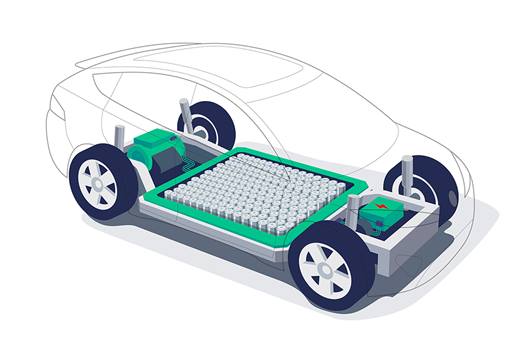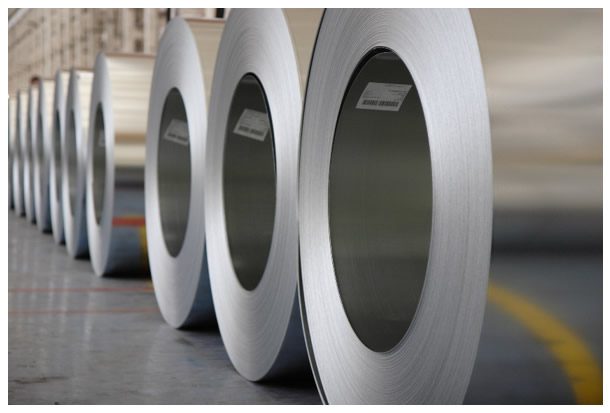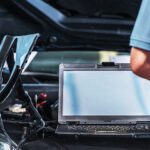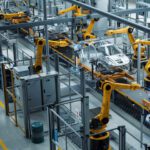Five Important Considerations in Electric Vehicle Battery Manufacturing for 2023
EV batteries have come a long way, with improvements in energy density, charging speed, safety, and cost. Five considerations are top of mind for engineers working on the next generation of battery solutions.

The vehicle energy transition is underway. By the end of 2023, the International Energy Agency expects 18% of new passenger vehicle sales will be electric. A key component enabling the growing success of EVs is the battery technology that powers them. EV batteries have come a long way in recent years, with improvements in energy density, charging speed, safety, and cost. That hasn’t been without difficulty, though, especially when attempting to attain the battery unit volumes and range-extending technologies demanded in today’s market. Here are five considerations that are top of mind for engineers working on the next generation of battery solutions:
1) Updated Battery Packs – EV battery systems can achieve higher energy density — gravimetric energy density (GED) and volumetric energy density (VED) — by optimizing designs for space and weight. Manufacturers and suppliers of battery assemblies, management systems, integrators, and other components are seeking ways to push the limits of weight cell-to-pack and volume cell-to-pack ratios while balancing assembly and manufacturing costs. Innovative options, such as new specialty materials, can help simplify the structure of the pack for a lower cost and light weighting. Minimizing weight in adjacent systems, including interconnects, helps support this goal. However, the current climate brings challenges in scaling up production and training an educated labor force to meet customers’ needs.

To provide conductivity without adding weight, engineers are turning to specialty metals. eStainlessclad from Materion is an ideal lighter weight replacement for stainless steel with excellent conductivity and heat spreading functionality. eStainless clad materials are ideally suited for frames, brackets, chassis, and housings in electronics. With 10 to 18 times higher thermal conductivity than steel, and comparable strength and stiffness properties, eStainless clad materials can be integrated as a drop-in replacement with existing components.
2) Thermal Management – Thermal management and heat transfer of the battery, e-motor, power control, and charging systems continue to challenge EV companies trying to enhance energy storage capacity, driving range, cell longevity, higher torque, and system safety. Each system presents its own thermal management challenge, so finding more sophisticated and better-performing material solutions is extremely important as demands on the industry increase.
3) Connection – As manufacturing and sales of EVs are rapidly accelerating, there is an increased need for fast-charging (high current/voltage) options to address a range of concerns around charging capacity, conductivity, and compatibility. Vehicle charging infrastructure, while improving, still has a long way to go in the U.S. and other countries, which means that the charging capacity of the vehicle itself is a top concern.

Advanced materials like Materion’s Dovetail Clad is a copper-to-aluminum strip that offers mechanical, electrical, and thermal advantages over ultrasonic or bolted attachments. Dovetail Clad strip is produced by joining these two dissimilar metals side-by-side in long continuous master coils. The coils can easily be stamped and formed to create bus bars and lead tabs especially fitted to lithium-ion battery packs for EVs, hybrid electric vehicles (HEVs) and plug in hybrid electric vehicles (PHEVs).
4) Raw Materials – Global demand for rare earth elements like lithium and cobalt is escalating rapidly. The reliance on a single source for these materials is a concern for the industry and U.S. national security. Successful transition from the use of cobalt (due to availability and cost) to other materials is driving chemistry adaptations and advancements. Suppliers are rushing to find domestic capacity for battery materials, specifically nickel, as geopolitical uncertainty clouds the supply chain landscape.
5) Sustainability – Environmental concerns around better ways to secure raw materials, reuse components, and recycle batteries are more important than ever. Valuable elements like nickel, cobalt, and lithium can be extracted from EV batteries and reused, helping to reduce impact. However, further development of the technology for recycling these materials is needed to make them more efficient before widespread adoption can be expected.
The transition to electric vehicles brings immense opportunities as well as challenges. Tackling these issues requires cross-industry collaboration, robust policy measures, and further technological innovation. With the right solutions, manufacturers can deliver the next generation of powerful, sustainable, and affordable battery technology to enable the widespread adoption of electric mobility.
 Materion is working closely with both battery manufacturers and interconnect suppliers to create innovative solutions for the electric vehicle industry. Learn more about how Materion products support emerging technologies.
Materion is working closely with both battery manufacturers and interconnect suppliers to create innovative solutions for the electric vehicle industry. Learn more about how Materion products support emerging technologies.
Electric Vehicles Move into the Mainstream with New EV Battery Technologies
EV Charging Connectors are the Foundation of Advancing Vehicle and Charging Technologies





